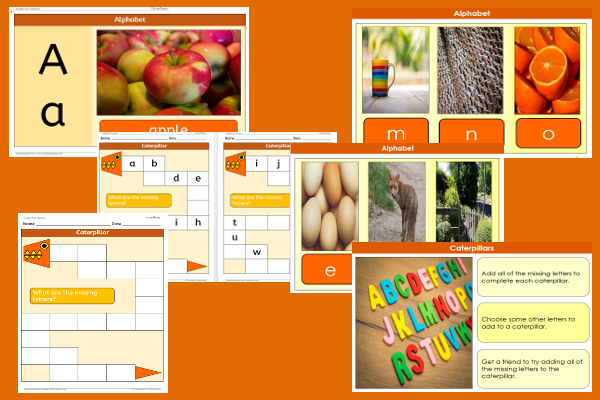Caterpillars

This English teaching pack for Key Stage One gets the children to identify and record how to complete different sections of the alphabet by adding the correct missing letters to complete picture caterpillar shapes.
The class can also create some of their own caterpillar shapes for a partner to complete by adding the matching letters to form each sequence of alphabet letters.
Download this teaching pack including display posters, classroom activities and an interactive presentation to identify and record how to complete different sections of the alphabet by adding the correct missing letters to complete picture caterpillar shapes
Activities in this teaching pack include display posters to sort and order the letters of the alphabet into the correct sequence and worksheets to identify and complete a section of the alphabet by adding the missing letters to complete the sequences for lowercase and capital letters.
The interactive presentation gets the children to explore how to complete different sections of the alphabet by adding missing letters to complete picture shapes.
This lesson is part of an English scheme of work to get the children to identify and record how to complete and order different groups of letters to show their matching sequences in the alphabet. There are teaching activities for shared learning, differentiated worksheets to support independent learning and interactive presentations to introduce concepts and key skills.
-

Science Questions
Practise asking and answering questions using the correct punctuation to investigate and explain how things work in the world
-

Family Events
Identify and record how to punctuate sentences that are statements and questions correctly to illustrate things that can happen in a family
-

Sea Sounds
Compose and perform a range of musical compositions to reflect movements of sea waves and animals that live on a beach and in the sea
-

Garden Flowers
Identify and record how to use pictograms to organise and present information about some of the special flowers growing in a family garden
